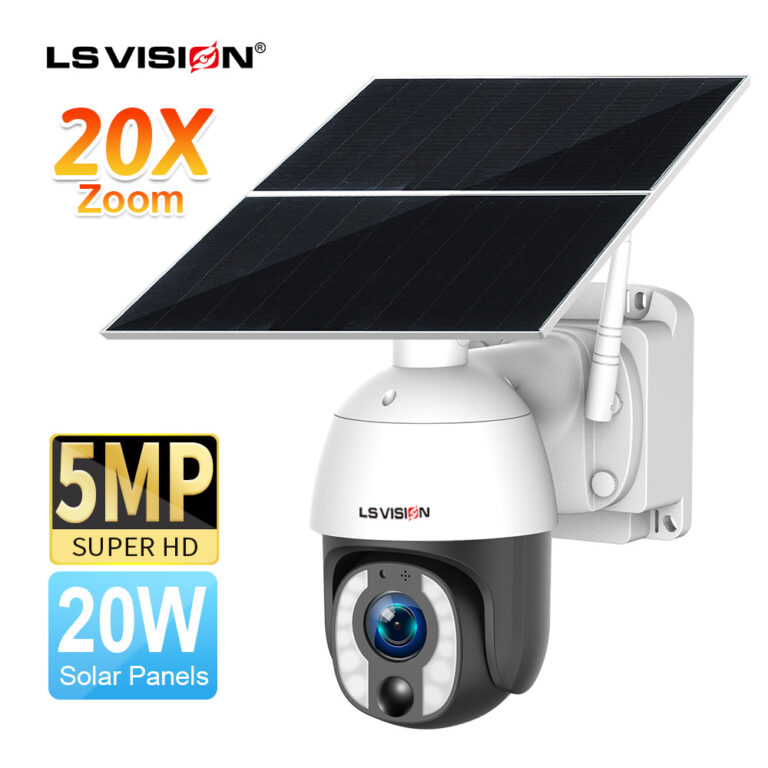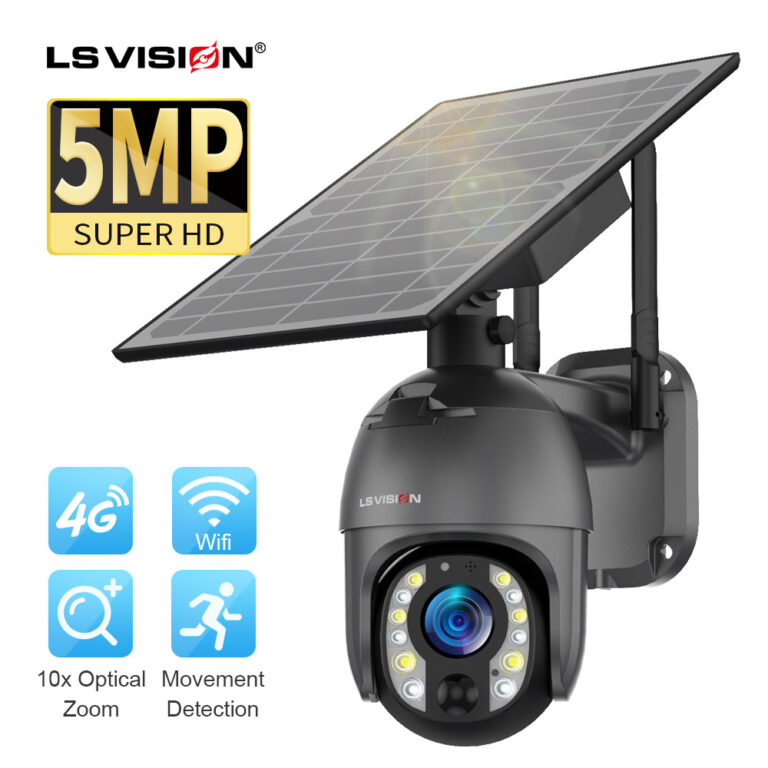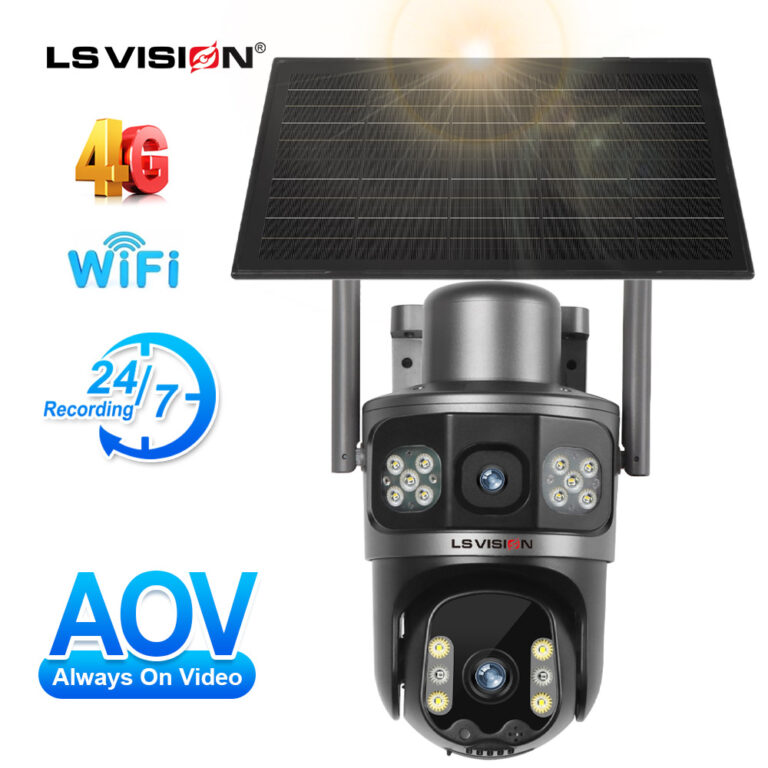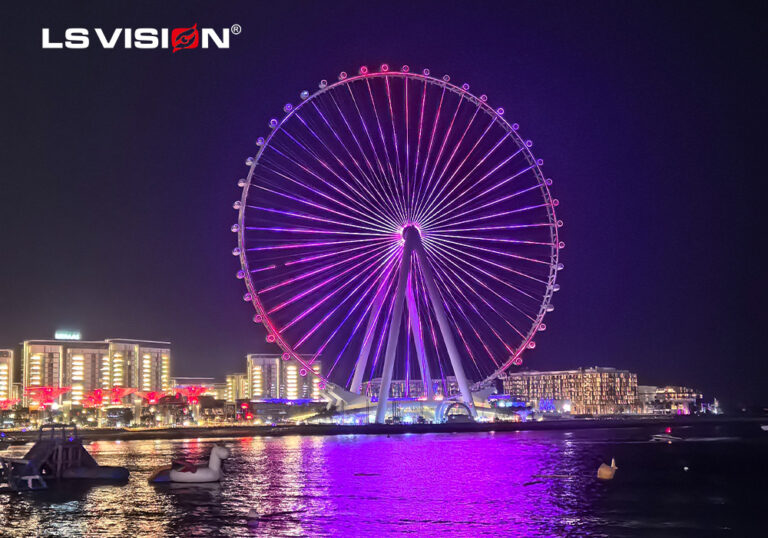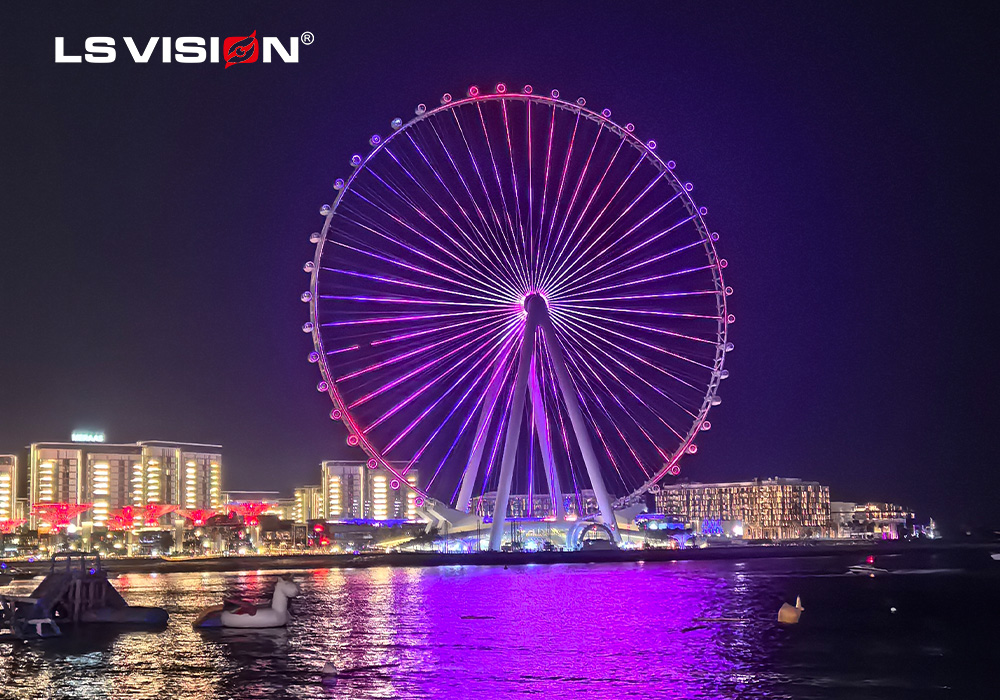When it comes to security monitoring, solar powered CCTV camera systems offer a versatile and eco-friendly solution. By harnessing natural sunlight, these cameras can watch over any location 24/7 without the need for exposed wiring or a nearby power source. They are especially suitable for outdoor, remote, and hard-to-wire areas.
So how exactly does Solar camera CCTV work? At their core is a solar panel that absorbs sunlight during the day and converts it into electricity. This energy charges an onboard lithium battery which then powers the camera continuously. At night, the battery takes over to ensure uninterrupted recording and viewing. Some cameras also come with features like motion detection that further optimize battery usage.

Solar Camera CCTV
A “Solar camera CCTV” harnesses the sun’s natural energy to power digital security around the clock. By converting sunlight to electricity through photovoltaic solar panels, these innovative camera systems can monitor expansive outdoor locations independently of additional power sources.
Components of solar CCTV cameras
The key components that make this process possible include:
- Solar panels: Made of photovoltaic cells like silicon, these absorb sunlight and produce electricity even on cloudy days. Larger panels enable charging bigger batteries for 24/7 recording.
- Battery: Reliable lithium-ion or lithium ferro phosphate batteries safely hold and distribute electric power to the other parts.
- Camera: High-definition image sensors and lenses capture crisp footage during the day and assist with night vision using built-in infrared illuminators. Onboard storage or cloud backup protects critical recordings.
Without limitations of power outlets or extension cords, solar cameras provide a flexible solution for surveillance anywhere solar powered CCTV camera shine their potent rays! Their rising popularity will surely continue powering security for both residential and commercial applications.

Installation of CCTV camera with solar
Installing a “CCTV camera with solar” demands evaluating environmental conditions to maximize performance. Proper planning results in security irrespective of weather.
Entorno de trabajo
VISIÓN LS cameras operate at -10°C to 55°C. Outside this range, battery reactions slow and apps may show lower charge levels. Humidity limits are 10-90% for IP66 integrity.
Temperature ranges
- Extended cold temperatures below -10°C
- An ideal range for optimum functioning is from 0°C to 45°C
- Excess heat over 55°C may impact battery longevity
Humidity tolerance
- Low humidity below 10% in arid climates
- High humidity safety up to 90% in tropical zones
- Avoid condensation forming inside the sealed casing
Placement considerations
- Correct positioning exposes the panel squarely to incoming sunlight devoid of shade.
Mounting outdoors away from overhead obstructions maximizes energy harvesting.
Location factors
- Terrain wind levels in coastal regions require larger panels than sheltered interiors.
Seasonal light variations based on latitude need sufficient reserve battery power.
Installation options
Connected installation firmly bonds the panel and camera, restricting placement. The separate installation uses extended cabling to independently place each for unobstructed sunlight throughout different seasons and times of the day. Tests show this flexible method yields 30% greater charging during rainy weather.
By understanding each model’s needs and your unique location variables, any “CCTV camera with solar” can securely safeguard property relying entirely on nature’s benevolent rays rather than unreliable electric grids. Contact specialists for personalized layout advice too.

Some suggestion for Solar camera CCTV install
As mentioned above, the requirements of solar monitoring multi-environment are very strict, the following are some installation suggestions we give:
- Affected by the regional climate, Africa, the Middle East, Australia and the Middle East countries are more suitable for solar products, if you choose products for home, garden, orchard, farm, garage and other places, we strongly recommend solar cameras.
- For the first installation, we recommend fully charging the new camera before installing it into the scene.
- When installing, please face the sun and maintain a 45 degree Angle from the sun.
- The material of the solar panel should be polysilicon, which will make it easier to store light energy.
- Keep the solar panels clean at all times.
Knowing this knowledge, how do we choose the brand of solar products?
Best CCTV camera brand
When seeking a trusted brand for “CCTV camera with solar”, few outperform pioneering manufacturer LS VISION.
LS VISION: Top Solar CCTV Camera Manufacturer
Founded in 2010 in Shenzhen, China, LS VISION epitomizes cutting-edge innovation in photovoltaic security innovations. Their ISO-certified 20000 square foot production facility contains state-of-the-art development laboratories staffed by a 200+ R&D team. Here, LS VISION conceptualizes solar powered CCTV cameras pushing boundaries to simplify surveillance for residential and commercial clients globally.
Annual output capacity numbers an impressive 10000 units daily, evidencing LS VISION’s position at the vanguard of their industry. Commitment to quality assurance earned honours like “China High Tech Enterprises” and membership in governmental initiatives. A track record supporting installers for 15 years constructs immense trust in the LS VISION brand.


